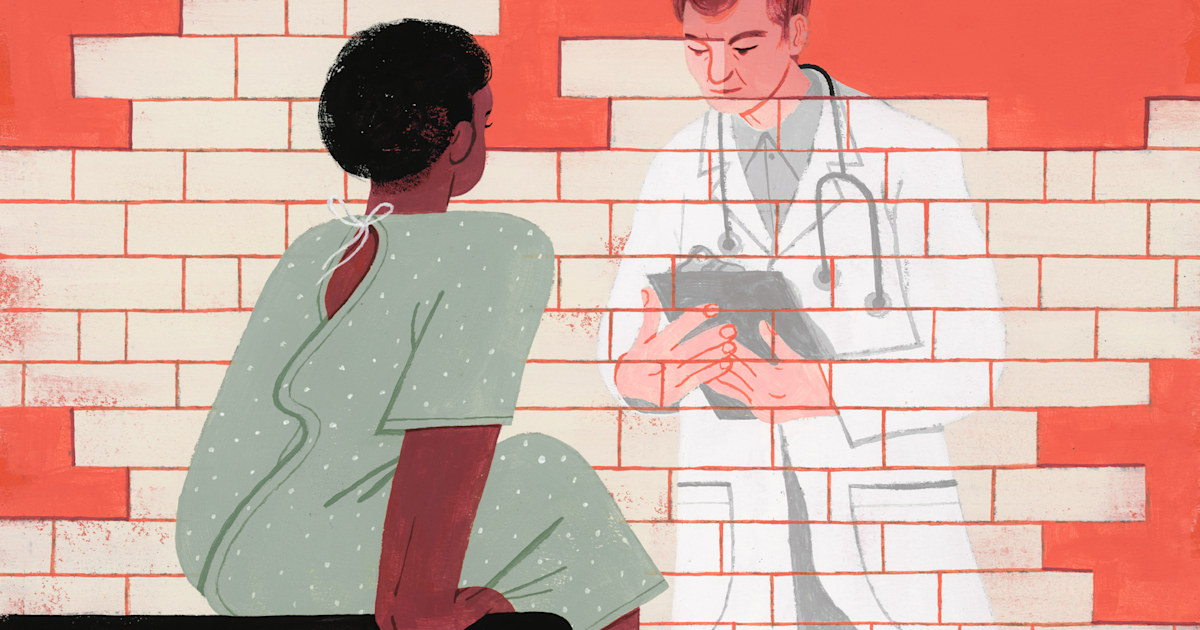Improving Mental Health Care: Addressing Systemic Issues

Table of Contents
Lack of Access to Affordable and Quality Care
Access to affordable and quality mental healthcare remains a significant barrier for many. This lack of access manifests in various forms, creating a complex web of challenges that disproportionately affect vulnerable populations.
Geographic Barriers
Geographic location plays a crucial role in determining access to mental healthcare. Rural communities and underserved urban areas often face a severe shortage of mental health professionals, leading to significant disparities in care.
- Shortage of mental health professionals: Many rural areas lack psychiatrists, psychologists, and other mental health specialists, forcing individuals to travel long distances for appointments or go without care altogether.
- Lack of transportation: Limited public transportation and the inability to afford private transportation further restrict access for individuals in remote areas.
- Limited telehealth options: While telehealth offers a potential solution, reliable internet access and technological literacy remain barriers in many underserved communities.
Addressing these challenges requires a multifaceted approach. Expanding telehealth services to rural areas with reliable internet infrastructure is crucial. Furthermore, implementing loan forgiveness programs for mental health professionals willing to practice in underserved communities could incentivize recruitment and retention.
Financial Barriers
The high cost of mental health services is a major obstacle for many individuals seeking treatment. Insurance coverage limitations further exacerbate this issue.
- High cost of therapy: Private therapy sessions can be prohibitively expensive, particularly for those without adequate insurance coverage.
- Limited insurance coverage: Many insurance plans have limited coverage for mental health services, resulting in high out-of-pocket costs for patients.
- Lack of affordable treatment options: Affordable treatment options, such as community-based mental health clinics, often have long waiting lists and limited capacity.
Solutions include increased government funding for mental health services to subsidize costs and expand access to affordable care. Insurance reform to ensure comprehensive coverage for mental health services is also crucial. Implementing a sliding-scale fee system in private practices can help make therapy more accessible to individuals with varying financial means.
Stigma and Discrimination
The pervasive stigma surrounding mental illness remains a significant barrier to seeking help. Fear of judgment, discrimination, and lack of understanding significantly impact help-seeking behaviors.
- Fear of judgment: Many individuals avoid seeking help due to fear of being stigmatized or judged by family, friends, employers, or society.
- Discrimination in employment and housing: Individuals with mental health conditions often face discrimination in the workplace and housing market, leading to further instability and barriers to recovery.
- Lack of understanding among family and friends: A lack of understanding and support from family and friends can hinder individuals from seeking professional help.
Combating stigma requires comprehensive public awareness campaigns to educate the public about mental illness and promote understanding. Implementing and enforcing anti-discrimination legislation is also critical. Educational initiatives targeting families, schools, and workplaces can help foster a more supportive and inclusive environment.
Insufficient Funding and Resource Allocation
Insufficient funding and inadequate resource allocation significantly hamper the ability to provide effective mental healthcare. This underfunding impacts various aspects of the system, leading to inadequate services and long wait times.
Underfunding of Public Mental Health Programs
Public mental health programs are often chronically underfunded, resulting in severely limited resources and significant consequences.
- Long waitlists for treatment: Insufficient funding leads to long waiting lists for treatment, delaying access to vital services.
- Limited access to medication: Many individuals struggle to access affordable medication due to limited funding for prescription assistance programs.
- Lack of community support programs: Community-based support programs, such as peer support groups and drop-in centers, often lack sufficient funding to meet the growing demand.
Increased government investment in mental health is paramount. This requires a substantial increase in funding for public mental health programs to expand capacity, reduce wait times, and provide comprehensive services.
Lack of Integration with Physical Healthcare
The lack of integration between mental and physical healthcare contributes to fragmented care and hinders effective treatment.
- Limited communication between providers: Often, mental health providers lack adequate communication with primary care physicians, leading to missed opportunities for early intervention and coordinated care.
- Lack of screening for mental health issues in primary care settings: Routine screening for mental health issues in primary care settings is often lacking, delaying diagnosis and treatment.
- Fragmented care systems: The current system often operates in silos, with mental and physical healthcare services largely separated, leading to inefficiencies and gaps in care.
Implementing integrated care models that bring mental and physical healthcare together is essential. Training primary care physicians to screen for mental health issues and facilitating effective communication between providers can significantly improve care coordination.
Inadequate Training and Support for Mental Health Professionals
The mental health workforce faces significant challenges, including burnout, high turnover rates, and inadequate training, all of which impact the quality of patient care.
Burnout and High Turnover Rates
Mental health professionals frequently experience high levels of burnout and stress, leading to high turnover rates.
- High caseloads: Many professionals are burdened with high caseloads, limiting the time they can dedicate to each patient.
- Long hours: Long working hours and demanding schedules contribute to burnout and exhaustion.
- Lack of administrative support: Insufficient administrative support adds to the workload and stress of mental health professionals.
- Emotional toll: The emotional demands of the job can take a significant toll on professionals' well-being.
Addressing burnout requires strategies to improve working conditions and reduce workload. This includes increasing staffing levels, providing adequate administrative support, and offering access to mental health services and support for professionals.
Need for Specialized Training and Resources
The need for specialized training in various mental health areas is vital, alongside the provision of resources to support continuing education.
- Addressing specific populations: Professionals require specialized training to effectively address the unique needs of specific populations, such as children, veterans, and LGBTQ+ individuals.
- Emerging mental health needs: Ongoing professional development is needed to keep pace with emerging mental health needs and advancements in treatment.
- Technological advancements in mental health care: Professionals need training to utilize the latest technological advancements in mental healthcare, such as telehealth and digital therapeutics.
Investing in ongoing professional development and access to the latest evidence-based practices is essential to ensure high-quality care. Supporting continuing education and specialized training programs can enhance the skills and knowledge of mental health professionals.
Conclusion
Improving mental health care requires a comprehensive approach addressing interconnected systemic issues: lack of access, insufficient funding, and inadequate support for professionals. These challenges necessitate significant changes in policy, funding, and the overall structure of the mental healthcare system. By working together to address these systemic issues, we can make significant strides toward improving mental health care for everyone. Join the movement to improve mental health care and demand systemic changes today!

Featured Posts
-
 Increased Chinese Naval Activity Off Sydney What Does It Mean For Australia
May 03, 2025
Increased Chinese Naval Activity Off Sydney What Does It Mean For Australia
May 03, 2025 -
 Fabio Christen Victoria En La Vuelta Ciclista A Murcia
May 03, 2025
Fabio Christen Victoria En La Vuelta Ciclista A Murcia
May 03, 2025 -
 Australian Oppositions 9 Billion Budget Repair Plan
May 03, 2025
Australian Oppositions 9 Billion Budget Repair Plan
May 03, 2025 -
 Lawsuit Filed Rupert Lowe Accuses Nigel Farage Of Defamation
May 03, 2025
Lawsuit Filed Rupert Lowe Accuses Nigel Farage Of Defamation
May 03, 2025 -
 Obsuzhdenie Ekonomicheskogo Sotrudnichestva Mezhdu Rf I Chekhiey
May 03, 2025
Obsuzhdenie Ekonomicheskogo Sotrudnichestva Mezhdu Rf I Chekhiey
May 03, 2025
Latest Posts
-
 Gabon Macron Annonce La Fin De L Ere Francafrique
May 03, 2025
Gabon Macron Annonce La Fin De L Ere Francafrique
May 03, 2025 -
 Macron Et Sardou Un Diner Tendu Ca Vient Du Ventre
May 03, 2025
Macron Et Sardou Un Diner Tendu Ca Vient Du Ventre
May 03, 2025 -
 Rome L Ombre De Macron Plane T Elle Sur L Election Papale
May 03, 2025
Rome L Ombre De Macron Plane T Elle Sur L Election Papale
May 03, 2025 -
 Macron Defend Un Patriotisme Economique Europeen Face Au Defi De L Intelligence Artificielle
May 03, 2025
Macron Defend Un Patriotisme Economique Europeen Face Au Defi De L Intelligence Artificielle
May 03, 2025 -
 La Serie Tf 1 Joseph L Ascension Fulgurante De La Creme De La Crim
May 03, 2025
La Serie Tf 1 Joseph L Ascension Fulgurante De La Creme De La Crim
May 03, 2025
